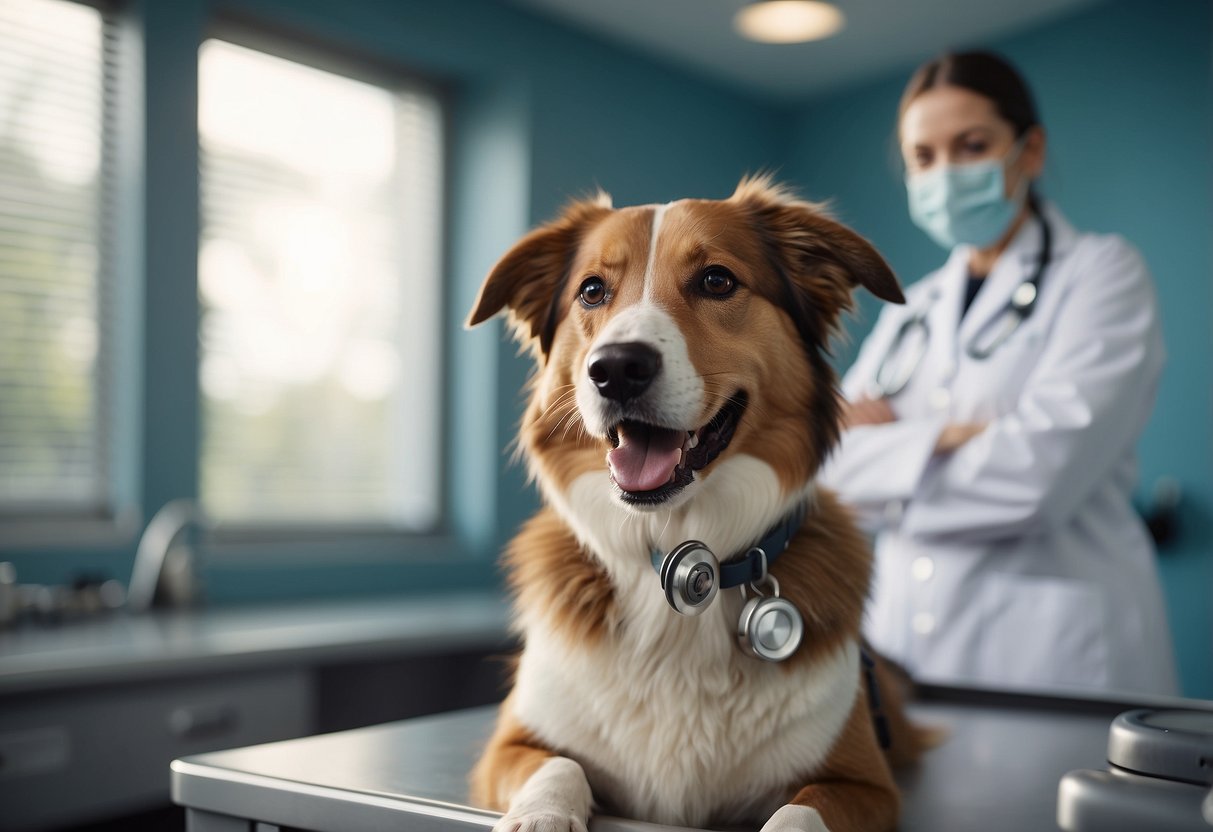
Components of a Routine Vet Check-Up
A routine vet check-up is crucial for maintaining your pet’s health. It typically involves a detailed physical examination, administration of essential vaccinations and boosters, and measures to prevent common parasites.
Physical Examination
The physical examination is the cornerstone of any vet check-up. During this process, the veterinarian assesses the overall health of your pet. They check vital signs such as heart rate, respiration, and temperature. The vet also inspects the eyes, ears, and mouth for any signs of infection or disease.
Next, they palpate the abdomen to check for abnormalities and examine the skin and coat for issues like fleas or ticks. They may also test the pet’s reflexes and mobility. This thorough examination helps identify any potential health problems early, enabling timely treatment.
Vaccinations and Boosters
Vaccinations are essential for preventing serious diseases. During a check-up, the vet reviews your pet’s vaccination history to determine if any boosters or new vaccines are needed. Common vaccinations include those for rabies, distemper, and parvovirus.
Each vaccine has a specific schedule. Puppies and kittens, for instance, require several doses in their first year. Adult pets may need boosters every 1-3 years, depending on the vaccine. Staying up-to-date on vaccinations protects your pet from potentially life-threatening illnesses and contributes to herd immunity in the pet community.
Parasite Prevention
Parasite prevention is another critical component of routine check-ups. Parasites such as fleas, ticks, and worms can cause significant health issues for pets. The vet typically recommends preventative treatments based on your pet’s lifestyle and risk factors.
They may prescribe monthly topical or oral medications to prevent flea and tick infestations. Additionally, they often suggest regular deworming treatments to combat intestinal parasites. These preventative measures are crucial for avoiding the discomfort and health risks associated with parasite infestations.
Regular vet check-ups provide a structured approach to maintaining your pet’s well-being through systematic examinations, timely vaccinations, and effective parasite prevention.
Nutrition and Weight Management
Regular vet check-ups play a crucial role in ensuring pets maintain a balanced diet and a healthy weight. Veterinarians are equipped to identify specific dietary needs and monitor any changes in weight, which are essential for your pet’s overall well-being.
Assessing Diet and Nutrition
Veterinarians assess the quality and appropriateness of a pet’s diet. This involves analyzing the nutritional content of their food, considering age, breed, and activity level. Proper nutrition is vital for maintaining a pet’s health, preventing diseases, and supporting their immune system.
Special attention is given to factors such as protein, fat, and carbohydrate intake. Vets may recommend certain brands or types of food that are better suited to the pet’s specific needs. They also evaluate portions to ensure pets are not overfed or underfed, which can impact overall health.
Monitoring Weight Changes
Weight management is a critical aspect highlighted during vet visits. Sudden weight gain or loss can be indicative of underlying health issues. Regular weigh-ins allow for the early detection of conditions such as obesity or undernutrition.
Vets provide guidance on managing weight through diet and exercise. They may suggest tailored feeding schedules or exercise routines to help achieve optimal weight. Monitoring changes over time ensures any deviations are addressed promptly, helping to maintain the pet’s health and vitality.



